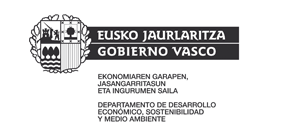The transformative research carried out by Orkestra is based on social sciences, aimed at tackling real problems hand in hand with the territorial actors directly involved in jointly identified challenges. It is a way of doing research that is developed through different methodological approaches that are differentiated, among other things, by their level of interaction with the actors and by the positioning of the research staff in the process.
Transformative research is congruent with a global trend towards broadening the sources of knowledge in research processes so that the results are actionable and sustainable in practice. Responsible research and innovation or citizen science are examples of approaches to research in which academic knowledge interacts with the practical knowledge of other actors (companies, public administrations) or citizens themselves, to co-generate results or innovations that address jointly identified challenges.
Parallel to the expansion of these approaches to research, universities and their research staff have been under increasing pressure to demonstrate the social impact of their research activities. But measuring the social impact of research is not an easy task. While academic impact can be measured quantitatively in the form of finished products (number of books published, number of scientific articles, number of academic conferences...), social impact is more difficult to assess because it is about non-linear processes of change that happen in real time and whose results usually take place in the medium and long term.
Indicators are certainly important because they provide simple and synthetic information that allows comparison and evaluation of performance, helping to guide policies or the use of resources. However, they also have the power to shape behaviour. An indicator is ultimately a definition of what is meant by something, and when it is standardised and extended in use that definition is closed. An example is the case of the Journal Citation Report, an instrument for comparing scientific journals and assessing their relative importance within the same field, which is also used to assess the quality of the academic output of research staff and of the universities themselves.
But if we bear in mind that the social impact of research cannot be understood without keeping in mind the context in which it occurs, we know in advance that it is not possible to measure with a general formula applicable to all cases. In fact, each research project will have to define what is meant by social impact and this definition will have to be the result of a dialogue among all the actors involved. Despite this, a review of the literature on scientific, social and political impact assessment in social sciences concludes that social impact assessment systems are based on approaches that primarily measure academic impact.
Measuring the social impact of research is therefore a challenge in itself, a fundamental challenge because the indicators used to measure this impact will end up determining the capacity of universities and their research centres to be proactive players in the socio-economic development of their territories. Orkestra's transformative research is no exception to this challenge. In trying to tackle it, we have learned some things and we have yet to resolve many others.
Throughout the year, a series of posts will be published on this blog that aim to contribute to this debate. We hope that this exercise will help us to deepen our own process of reflection and also contribute to similar reflections that are being developed in other contexts.

Mari Jose Aranguren
Mari Jose Aranguren is the General Director at Orkestra and Professor in Economics at Deusto University. She has worked at Orkestra since its beginning in 2006. Mari Jose is a recognised expert in the area of competitiveness and territorial strategy, cluster and networks, and the analysis and evaluation of policies, having published several books and articles in specialised national and international journals of impact.

Patricia Canto
Patricia Canto is a researcher at Orkestra-Basque Institute of Competitiveness. She holds a PhD in Social Sciences (University of Deusto); an MPhil in Development Studies (IDS-University of Sussex); an MA in International Relations (University of Sussex) and a BA in International Relations from the Autonomous National University of Mexico (UNAM).














